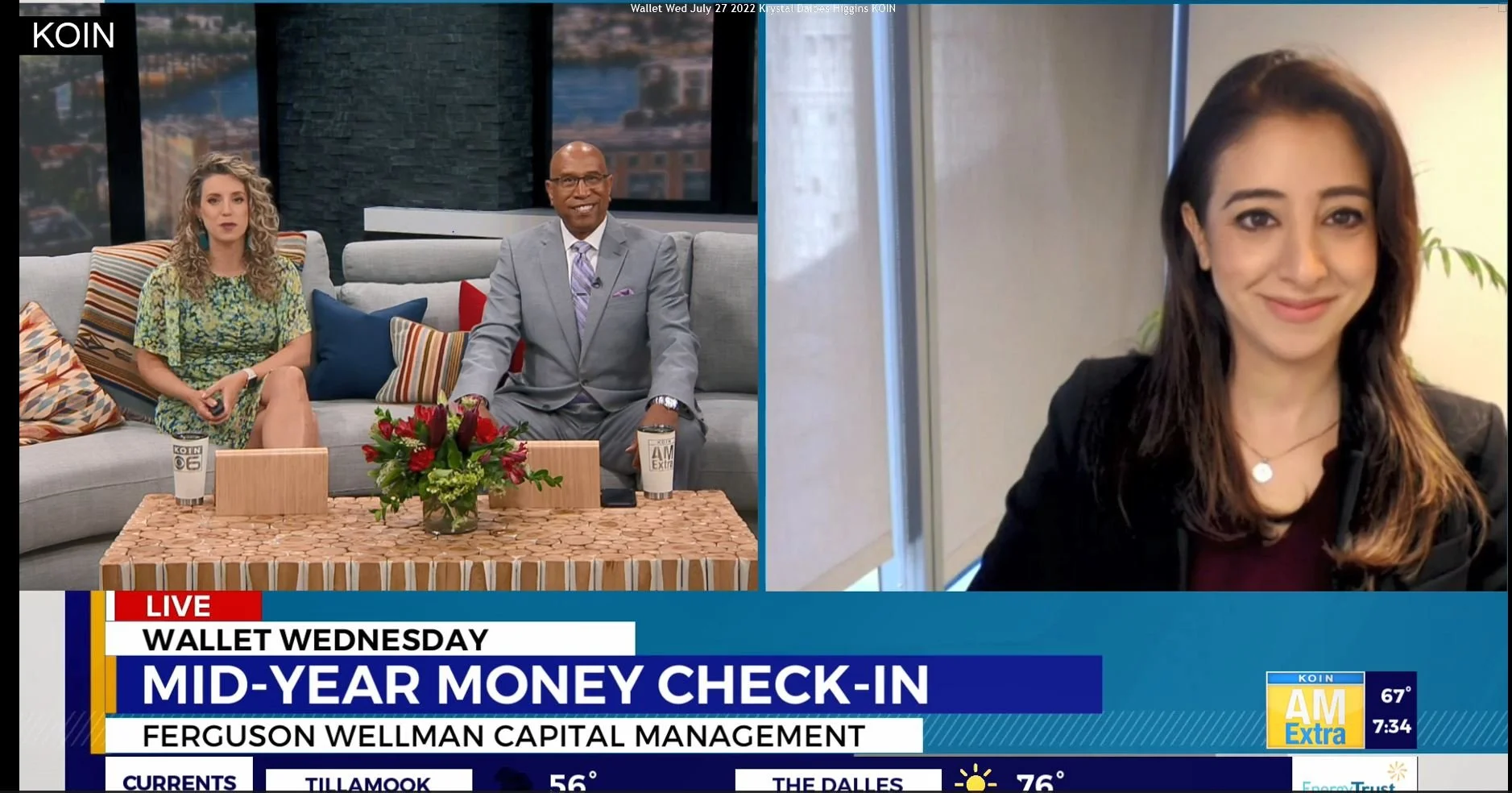As investors handicap the most anticipated recession in history, fourth quarter equity returns are playing out as expected. Historically, the fourth quarter, specifically the month of December, delivers the best results for equity investors. While this quarter has continued the positive trend, December is not acting as planned.
Daibes Higgins on KOIN Wallet Wednesday
Krystal Daibes Higgins, CFA, appeared on KOIN News Wallet Wednesday on July 27, 2022, and discussed the recent Fed Hike, inflation and gas prices.
The Return of $1 Gas?
On Monday, for the first time ever, the price of oil contracts for future delivery fell below $0 to -$37.63 per barrel. While financial markets have adapted to the unfortunate reality of negative interest rates, a negative price for a physical commodity is another issue.
Stuck With You
 by Ralph Cole, CFA
Executive Vice President of Research
by Ralph Cole, CFA
Executive Vice President of Research
Stuck With You
We all know too much of a good thing is no longer a good thing: that has been the case with interest rates in recent years. Coming out of the financial crisis, banks needed lower interest rates so they could repair their battered balance sheets. Short-term rates came down even faster than long-term rates and allowed banks to pay virtually nothing on deposits and make loans at a substantial profit. As long-term rates have come down, banks have had to lower what they charge for loans, thus reducing their profit margins (otherwise known as net interest margins). For the last couple of years, banks have been hoping for higher rates. Thus far this quarter they have received their wish and we can see that regional bank stock prices have responded well.
Source: FactSet
The correlation between U.S. 10-year Treasury yields and the regional bank index has been remarkable. The theory is that as long-term rates rise banks will be able to charge more for the loans than they make. They will also get higher returns on bond investments that they offer. These improved profit margins will help bank earnings. Much like the relationship between oil and gasoline prices at the pump, banks will be slow to raise interest on deposits and much quicker to increase what they charge on loans. We expect rates to continue to move higher throughout the rest of the year.
Every Little Thing Is Going to be Alright
In a year when the Fed is expected to raise interest rates every piece of economic data is parsed and picked apart. This week it was retail sales and consumer comfort. Retail sales were strong, whereas consumer comfort came in weaker than expected … So let’s just step back for a moment.
Employment gains have resumed their 200,000+ trajectory from 2014. Wage growth is finally starting to flow through the economy. Consumers and corporations continue to benefit from generationally low interest rates. We believe the consumer and the economy are on solid footing and that bodes well for whenever the Fed starts raising rates - be it June, September or December. We caution all not to worry too much about the daily economic numbers or the daily movements in the stock market.
Takeaways for the week:
- Banks are a beneficiary of higher long-term interest rates
- "Main Street" is finally feeling the positive effects of this economic expansion
Slowdown?
 by Jason Norris, CFA
Executive Vice President of Research
by Jason Norris, CFA
Executive Vice President of Research
The first couple weeks of trading in October have been volatile, primarily on the downside. While the U.S. economy continues to print positive data points, most other regions around the globe seem to be experiencing some headwinds. We continue to see deteriorating economic data coming out of the Eurozone. Germany had been stronger; however, recent data is pointing to the country possibly entering into recession. Industrial production and manufacturing orders came in weak, and this concern has pushed the yield on the 10-year German Bund to 0.84 percent.
China is a wildcard as well. Growth has been slowing moderately; however, Thursday evening technology investors were greeted with bad news from a key component supplier. Microchip Semiconductor, a supplier of chips that go into a broad array of consumer, household and industrial products, issued a warning citing weakness in China. The company believes this is a short-term issue, but demand just three months ago was strong. This resulted in a drubbing of the Philadelphia Semiconductor index and caused the industry to be down over 5 percent on Friday. Even though there may be some general hiccups in demand, we continue to play the semiconductor space through specific technologies and applications, primarily in the wireless space.
We don’t anticipate a slowdown here in the states. The U.S. economy should continue to exhibit solid growth and decouple itself from the rest of the globe. The most recent positive development has been the decline in energy prices over the last couple weeks, which will result in a nice increase of discretionary income for U.S. consumers.
When Doves Cry
The Fed released its meeting minutes earlier this week and the capital markets were pleasantly surprised. There had been some concern that the Fed may become more hawkish and looking to tighten. However, contents of the minutes showed the Fed to be focused on the data. They highlighted benign inflation, a strengthening U.S. dollar (which is positive for low inflation) as well as increased risks of a global slowdown due to Europe’s stalling growth. We still believe that the Fed will be looking to raise the funds rate in the second quarter of 2015. Even though inflation remains low, U.S. economic growth will support the beginning of a rate hike cycle.
European Central Bank President Mario Draghi also signaled his dovish intentions for the ECB earlier this week. At a speaking engagement in Washington D.C., he stated that the bank was willing and able to alter its current bond buying program which may eventually move from just asset-backed securities to actual sovereign debt. We believe the ECB will be active in the market and will attempt to push growth higher to fight any possibility of deflation.
Our Takeaways for the Week:
- While the Eurozone looks to be slowing, U.S. economic growth remains healthy which is positive for both the U.S. dollar and equities
- The Fed will remain data dependent when determining when to increase rates, which probably won’t happen for another 6-9 months









